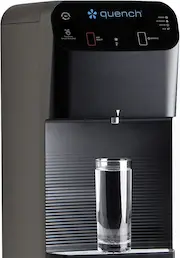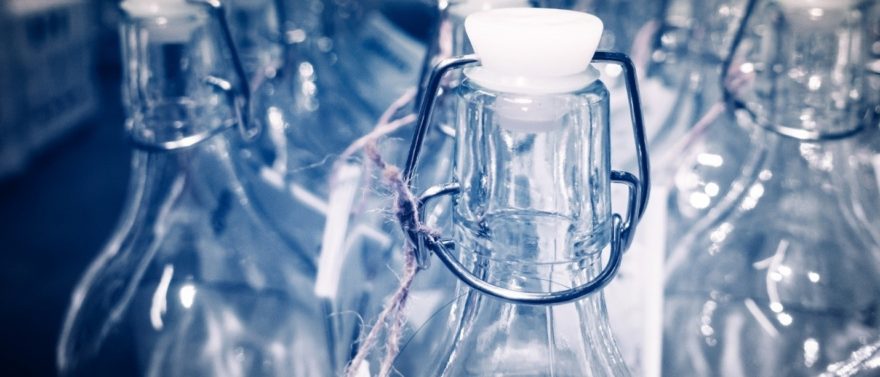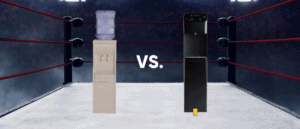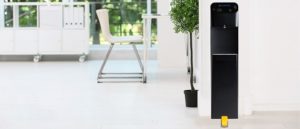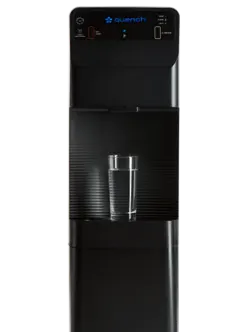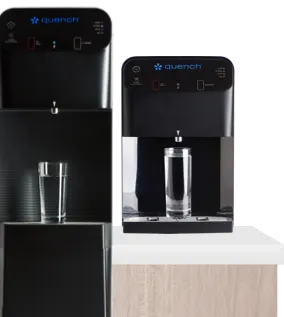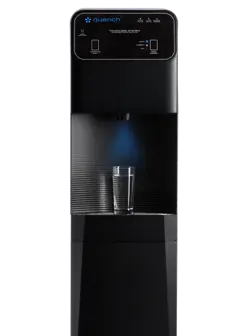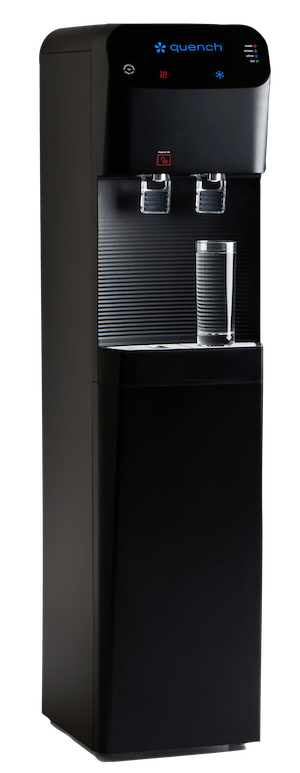Last updated: 11/18/2020
Water is one of the most abundant resources on our planet. And if you’re lucky enough to live in a part of the world that offers publicly treated water from the tap, you can access the clear liquid from virtually any building with indoor plumbing. Despite its ubiquity, water is a hot commodity. Many people today will dish out big bucks for bottled water delivery services. You may think it’s strange that someone would be willing to pay for water to be delivered in clear plastic water bottles when they can get it for practically free from a faucet. To fully comprehend the prevalence of bottled water delivery services, it helps to know the history of plastic water bottles.
1600s to 1700s
The first recorded water bottling took place in the early 17th century at the Holy Well in the United Kingdom. People drank and transported water from the Holy Well because they believed it had healing qualities. There was a resurgence of water therapy among wealthy American colonists in the 18th century. The first commercially distributed bottled water in the United States was collected from natural mineral springs and sold in spas. Early drinkers of bottled water believed the water had therapeutic properties that could help treat many common ailments.[1]
1800s
Aspiring entrepreneurs took advantage of the swelling popularity of bottled natural spring water by making it their own. In 1809, a man named John Hawkins was issued a patent for “imitation” mineral water. Today, it would be called carbonated or sparkling water. Sparkling water was originally created to mimic the effervescence of water drawn from natural springs.
1900s
Thanks to technological advancements, by the early 20th century the production of glass bottles and botting water could be carried out on a large scale at a reasonable cost. Bottled water was also more attractive back then because it was treated separately from municipal water. Since early 19th century municipal water was often contaminated with dangerous pathogens like cholera and typhoid, bottled water was considered safer to drink.
1973
A type of plastic called polyethylene terephthalate (PET) was invented by a DuPont engineer in 1973. PET changed the bottled water game. Bottles made with PET were able to withstand the pressure of carbonated liquids and were more durable and lighter than glass. It therefore did not take long for PET plastic to replace glass as a preferred material for single-serving bottled water containers.
1994
The next big milestone in bottled water history happened when big bottled water companies started incorporating reverse osmosis systems in their production process. Instead of extracting water from underground aquifers and springs, which was where most bottled spring water came from in 1994, PepsiCo and Coca-Cola used municipal tap water filtered through reverse osmosis systems. After this development, bottled water brands no longer had to transport their water supply from a single original source. Instead, they could fill their plastic water bottles with locally sourced water they filtered themselves.
2001-2002
Around 115 billion liters of bottled water were sold worldwide in 2001. From 2001 to 2005, the volume of bottled water sold grew 11%. By 2002, four large multinational companies – Danone, Nestle, Pepsico and Coca-Cola – controlled over 30 percent of the global market share.
2016
In 2016 plastic water bottles sales surpassed sales of soft drinks. At this point in history, many people understood the world was experiencing a plastic crisis. Bottles were clogging waterways, filling up landfills, and polluting oceans and the surrounding environment. Plastic bottles and bottle caps ranked as the third and fourth most collected plastic trash items.[2] As consumers became more environmentally conscious, plastic water bottles became less acceptable.
Read more about how Quench point-of-use water coolers protect the environment.
Present
Nowadays, you can access clean mineral water without involving single-use plastic. Bottled water may taste great, yet it comes at a cost. Plastic water bottles are expensive, can contain dangerous chemicals, and are harmful to the environment. Instead of paying extra for bottled water delivery services and plastic water bottles that will eventually run out, get a bottleless water dispenser with a reverse osmosis system for unlimited filtered drinking water.
Bottleless water dispensers (a.k.a. point-of-use water dispensers) connect to your building’s existing water line. Those machines then use state-of-the-art filtration and sanitization technologies to filter water from your tap, providing a virtually endless supply of clean, fresh, great-tasting water for pennies a day!
Quench Bottleless Water Dispensers Are A Great Alternative to Bottled Water Delivery Services
Businesses that get their water from a Quench point-of-use water dispenser typically save up to 50% versus bottled water delivery services. And machine maintenance, filter changes, and repairs are included at no additional charge!
If you want to step your water game up a notch, you can get a bottleless water dispenser with a reverse osmosis system. Quench offers special water machines that purify your drinking water and then add back important electrolytes and minerals your body needs to stay hydrated. This special mineral water is called quenchWATER+ and it’s offered with our Q series machines, the Q7, and the Q5. The difference between quenchWATER+ and other filtered water is Quench’s proprietary five-filter set-up. That set-up includes a sediment filter, a pre-carbon filter, a reverse osmosis membrane, a Mineral+ filter, and a polishing filter. Click here to see the full five-step process in action.
If you’re ready to get with the 21st century, save money, and save the environment, rent or purchase a bottleless water dispenser for your business. Want to learn more about Quench and our water cooler rentals? Click here! Can’t wait to get started? Click on the green “Get a Quote” button and we will contact you. Or give us a call: 844-303-2841!
[1] https://blog.bccresearch.com/birth-of-the-bottled-water-industry
[2] https://www.nationalgeographic.com/environment/2019/08/plastic-bottles/
